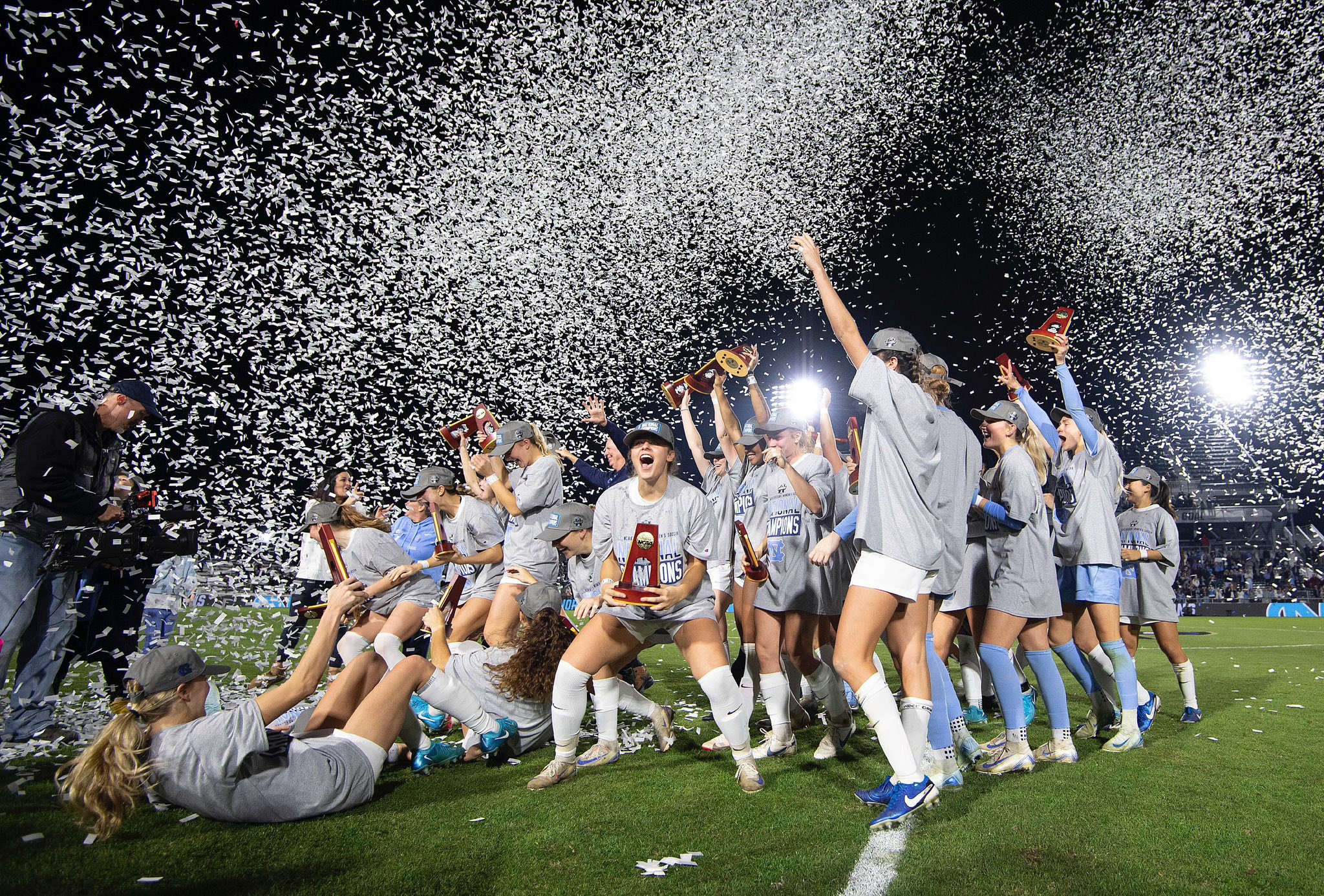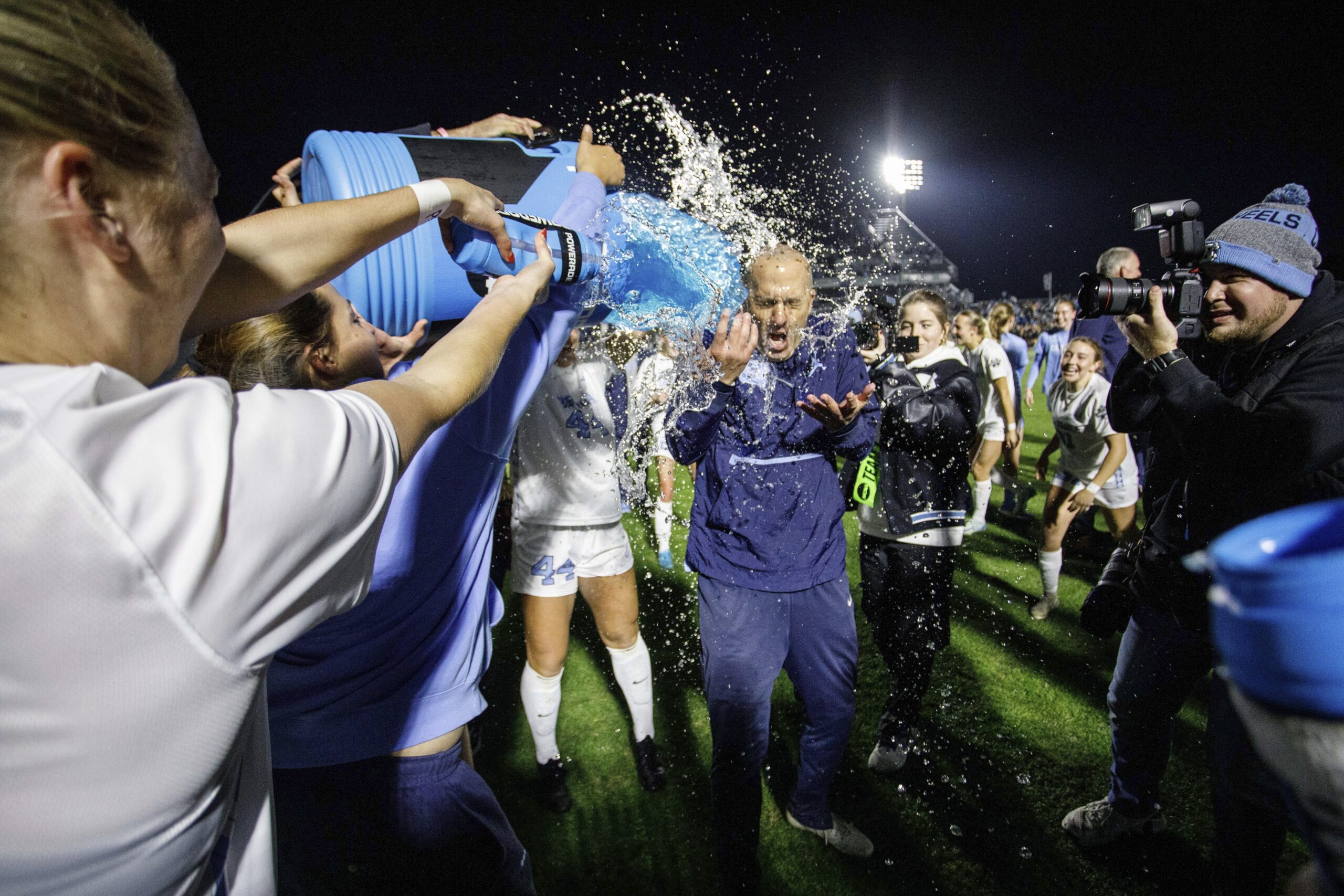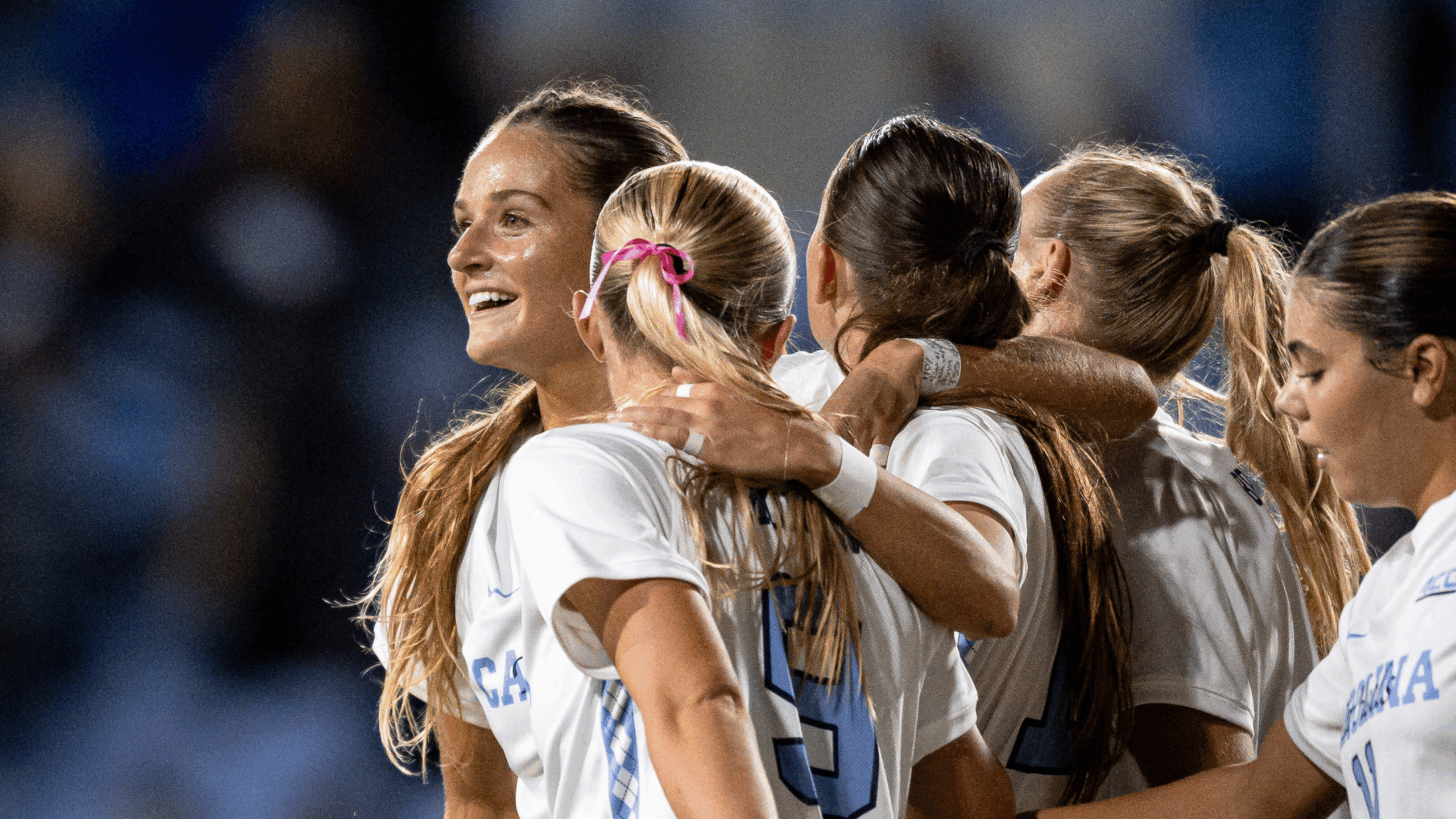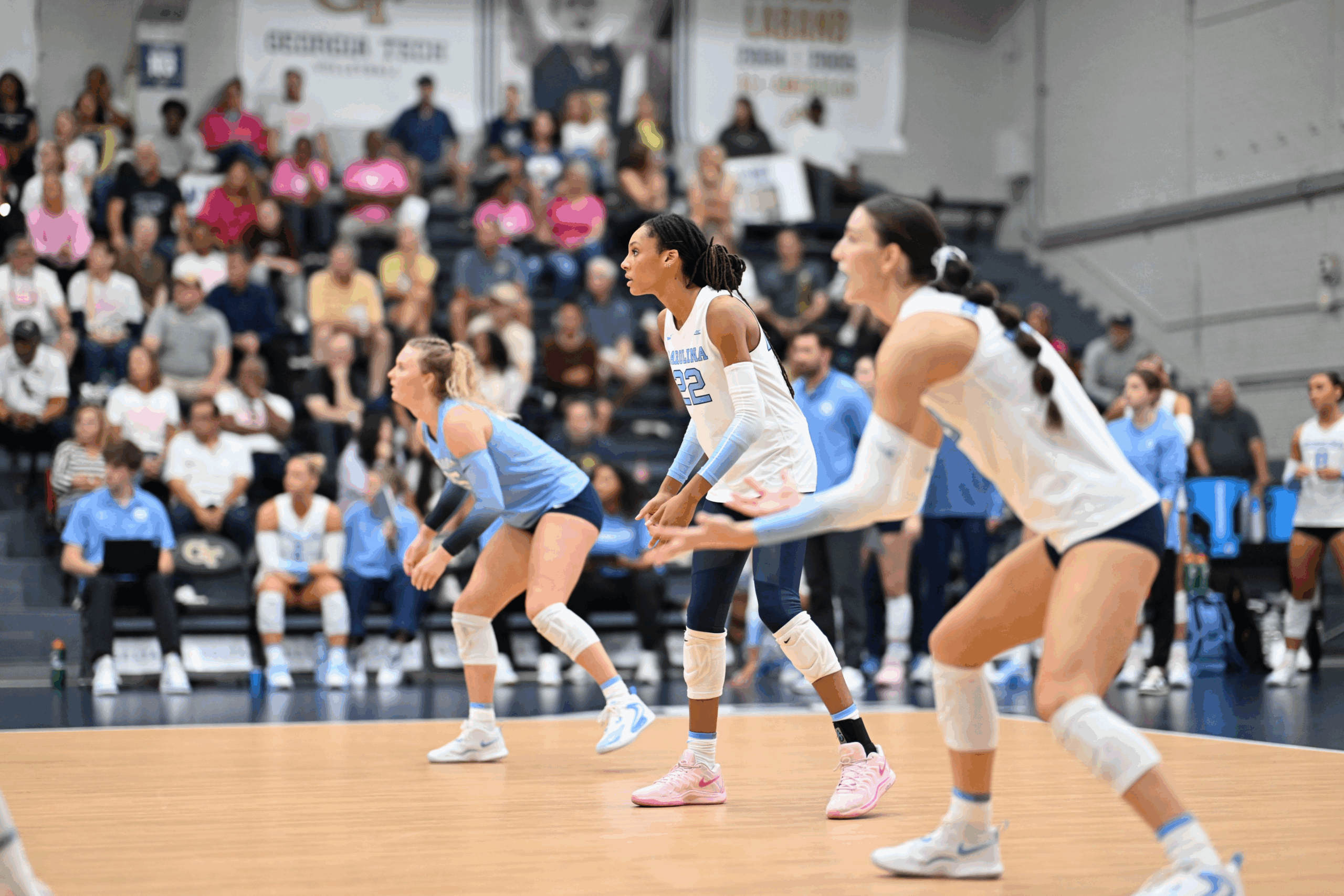
To reflect on the year, Chapelboro.com is re-publishing some of the top stories that impacted and defined our community’s experience in 2024. These stories and topics affected Chapel Hill, Carrboro and the rest of our region.
For decades, Anson Dorrance had defined athletic excellence around Chapel Hill. The venerable UNC women’s soccer head coach was the architect of one of the greatest dynasties in any sport, winning 22 national titles with the Tar Heels. But in recent seasons, Dorrance’s teams had stumbled at the finish line. Entering 2024, it had been 12 long years since Carolina had lifted the trophy — the longest such drought in program history. And with multiple members of the 2023 team either transferring or turning pro, 2024 seemed to be a season of transition for Dorrance’s program. Then he made a stunning announcement.
On Sunday, August 10, Carolina played its final exhibition match of the preseason against Davidson. The Tar Heels won, 3-0, at Dorrance Field. Afterward, head coach Anson Dorrance – the man for whom UNC’s soccer facility is named – called his team together. The 47-year head coach and 22-time national champion had some news: he was retiring, just five days before the start of the regular season.
“I realized I didn’t have the same energy it takes to give 100 percent to this year’s team,” Dorrance said in a statement. “The players and staff, the university, Carolina athletics and our great fans deserve more, and the respect I have for the amazing legacy the current and former players have built led me to make this decision at this time.”
In the wake of the shocking exit, Dorrance’s assistant Damon Nahas was named interim head coach. While Nahas would lead the Tar Heels during the 2024 season, the school would embark on a national search for Dorrance’s permanent successor.
Carolina’s first season ever without Dorrance patrolling the sidelines started out well enough: UNC won its first six matches before suffering its first loss of the season at Duke on September 5. The Tar Heels went on another hot streak after that, winning their next seven matches and allowing just two total goals in that span.
But the end of the regular season saw Carolina drop three of its final four matches to Stanford, Florida State and Duke – now ranked No. 1 in the nation – for the second time.
UNC entered the ACC Tournament as the No. 4 seed and booked a trip to the semifinals with a 2-0 win against No. 5 Virginia Tech in the opening round. That brought about a rematch (or three-match?) with the top-ranked Blue Devils, who had already beaten Carolina in Durham and in Chapel Hill. This third installment of the rivalry would come on a neutral field, at the WakeMed Soccer Park in Cary.
After falling behind 1-0, UNC rallied in the second half. ACC All-Freshman honoree Linda Ullmark netted the equalizer and first team All-ACC defender Trinity Armstrong – also just a freshman – scored the match-winner. Armstrong also provided a key goal-line block of a potential Duke equalizer. Carolina won 2-1 to advance to the ACC Championship.

Freshman defender Trinity Armstrong’s contributions sparked UNC’s late-season surge. (Image via UNC Athletic Communications)
The Tar Heels faced reigning national champions Florida State for the ACC title. Though Carolina carried a lead into halftime, the Seminoles scored a pair of goals in the second half to earn another conference championship and beat UNC for the second time on the season.
UNC entered the NCAA Tournament as a No. 2 seed. The Tar Heels breezed through the first round but had to fight to the match’s final moments in the second round, beating Santa Clara 1-0 by virtue of a 90th-minute winner from Tessa Dellarose. That win advanced Carolina to the Sweet 16, but the tournament’s most notable result came later that night. Florida State, the No. 1 seed in UNC’s region, lost in penalty kicks to No. 8 Vanderbilt in a stunning upset. The Commodores’ victory meant Carolina held home-field advantage through the College Cup.
The Tar Heels capitalized on that advantage, dominating No. 6 Minnesota in the Round of 16 before their national quarterfinal tilt with No. 4 Penn State went down to the wire. The Nittany Lions scored first before Carolina equalized in the second half, and the match went into golden-goal extra time. In the extra period, Kate Faasse – who finished as the nation’s leading goal-scorer – knocked in a corner kick to send UNC into the national semifinals.
The win clinched Carolina’s 32nd appearance in the NCAA College Cup in Cary — and an unprecedented fourth meeting of the season with Duke, which blazed through its region as the tournament’s No. 1 overall seed. Though the teams’ previous three meetings had all been decided by one goal, the fourth was a blowout. On a frigid night at WakeMed Soccer Park, UNC came out hot with a pair of first-half goals on its way to a 3-0 win.
In the national championship, the Tar Heels would face another in-state opponent: No. 2 seed Wake Forest, which had beaten No. 3 Stanford in the first match of the All-ACC College Cup. In front of another packed house, the Tar Heels struggled to find a footing in the first half. The Demon Deacons sent three shots on goal while UNC had none, but the scoreboard stayed at 0-0 heading into halftime.
“I told them, ‘We won that first half,’” Nahas said. “What I mean by that is, Wake Forest dominated us. We won being 0-0… that, to me, was the biggest message.”
In the second half, UNC controlled more possession and finally broke the scoreless draw. After the Tar Heels earned a free kick on the edge of Wake Forest’s 18-yard box, sophomore striker Olivia Thomas stepped up and fired a free kick into the corner of the net.
UNC’s defense buckled down in the match’s nervy final 28 minutes, holding the Deacons without a shot on target. The players – and the Carolina-heavy crowd – watched the 90 minutes tick away. Memories of a heartbreaking loss in the 2022 championship match – when UCLA scored an equalizer in the 90th minute and then won in extra time – came and went. The Tar Heels were national champions for the first time since 2012.
Nahas, who had coached the entire season with his interim tag, took a moment after the victory to tell his team some more good news: athletic director Bubba Cunningham had removed that tag earlier in the day. Nahas had waited until the match’s conclusion to inform the players.
“What an amazing group of women that I’ve been fortunate to coach over the course of this year,” Nahas said.

North Carolina interim head coach Damon Nahas is dunked after defeating Wake Forest in an NCAA Women’s College Cup soccer final in Cary, N.C., Monday, Dec. 9, 2024. (AP Photo/Ben McKeown)
And the newly-minted full-time coach still found time to include his old mentor.
“I FaceTimed Anson as soon as the game [ended],” said Nahas. “This is a gift for him. They love him and he’s around us all the time, and he deserved to be a part of this with us.”
The championship win is the 23rd for the UNC women’s soccer program, 22 of which have come in NCAA competition (the first is an AIAW championship in 1981, before the advent of the NCAA women’s soccer tournament). It also reaffirmed the Tar Heels as the nation’s dominant program in the sport after an extended hiatus from the top of the podium.
And then there’s this: UNC has 22 NCAA titles. The rest of the programs in Division 1 have 21 combined.
Featured image via UNC Women’s Soccer on Twitter
Chapelboro.com does not charge subscription fees, and you can directly support our efforts in local journalism here. Want more of what you see on Chapelboro? Let us bring free local news and community information to you by signing up for our newsletter.










